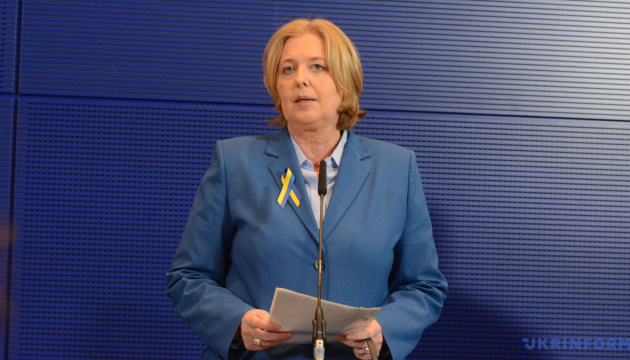
Bundestag considering recognizing Holodomor as genocide against Ukrainian people
Germany's Bundestag continues to study the issue of recognizing the Holodomor of 1932-1933 as genocide against the Ukrainian people.
The President of the German Bundestag, Baerbel Bas, said this in an interview with Ukrinform.
"The Petitions Committee of the German Bundestag is considering a petition about the Holodomor, which was signed by more than 56,000 people. We are still waiting for the results," said Baerbel.
She recalled that a joint German-Ukrainian commission of historians had considered the topic since 2015. She also noted that Germany supported a declaration for the 85th anniversary of the Holodomor at the 73rd UN General Assembly so that the memory of the victims of the Holodomor would be properly honored.
Speaking about the possibility of providing a political and legal assessment of today's atrocities by Russia, the politician noted that "it is important today that Russian war crimes in Ukraine are documented, then independently investigated, and the guilty brought to justice." The international community should provide assistance in this process. In particular, the German Bundestag has repeatedly condemned these crimes, Bas said, noting that the Public Prosecutor General at the Federal Court of Justice has already started an investigation against Russia after concrete signs of war crimes emerged.
"It is absolutely clear that without truth there can be neither justice nor true peace. Injustice must be called injustice and recognized as such," Bas said.
As reported, the Ukrainian side has been calling on the Bundestag for several years to recognize the Holodomor as genocide. This issue was considered at a meeting of specialized committees and partially in the session hall. However, at least before the war, German politicians, mostly the government, were not ready for such a step. A delegation of the Petitions Committee was supposed to visit Ukraine, but the war adjusted these plans. As for the commission of historians, it has been repeatedly criticized by Ukraine's Ambassador to Germany Andrij Melnyk.
